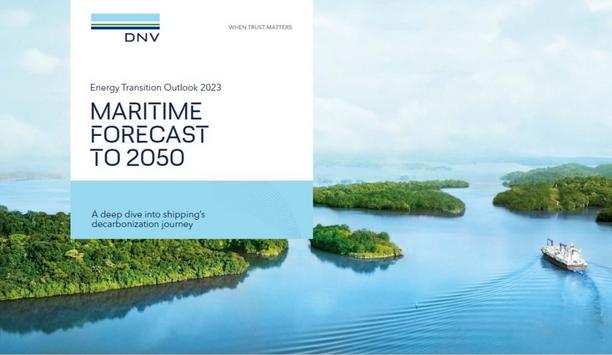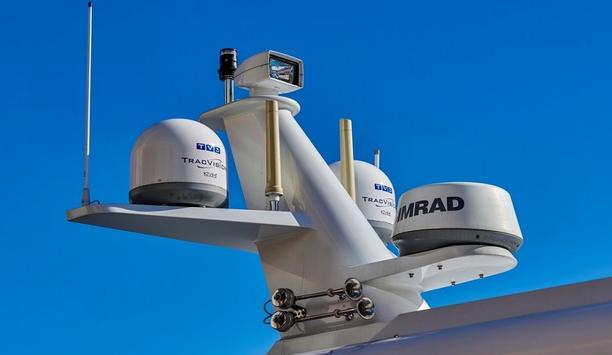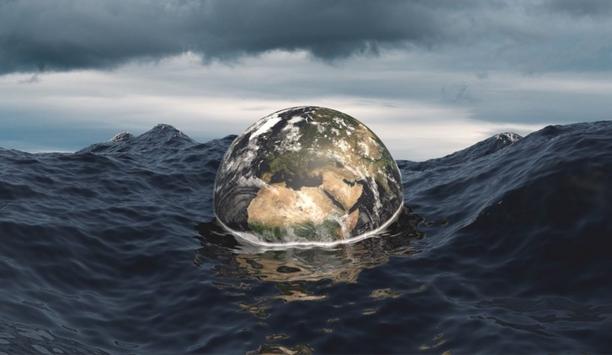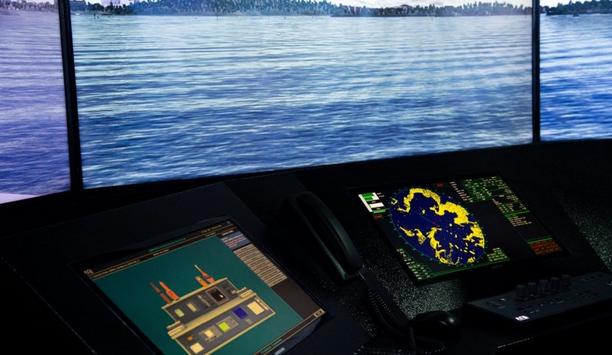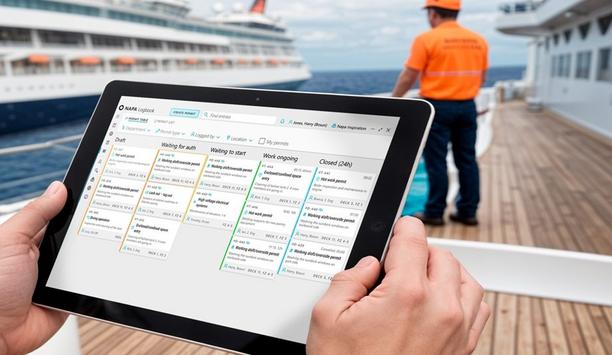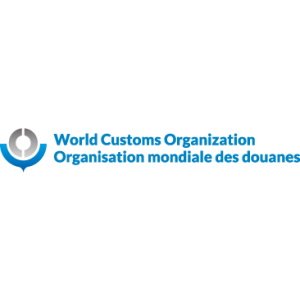Larry Anderson

Larry Anderson
Editor, MaritimeInformed.comAn experienced journalist and editor, Larry is MaritimeInformed.com's eyes and ears in the fast-changing maritime marketplace, attending industry and corporate events, interviewing maritime leaders and contributing original editorial content to the site. He leads MaritimeInformed.com's team of dedicated editorial and content professionals, guiding the "editorial roadmap" to ensure the site provides the most relevant content for maritime professionals. Larry also commissions Expert Commentary / Thought Leadership features, providing a platform for the industry's top executives to comment on the dynamic maritime industry.
Articles by Larry Anderson
Offshore wind farms are a major component of the future of clean energy, and the share of electricity generated by offshore wind turbines will increase as the global community works to minimise carbon...
U.S. President Joe Biden has signed an Executive Order aimed at shoring up the cybersecurity of U.S. ports, a move fuelled by mounting concerns about the vulnerability of this critical infrastructure...
We are in the midst of a decisive decade when it comes to the future of maritime. Facing a long-term goal of achieving net-zero emissions by 2050, the industry needs to make more informed and science-...
The coronavirus pandemic highlighted the shortcomings in the maritime/intermodal supply chain. Consequences of the pandemic included volume surges, equipment dislocation and shortages, warehousing a...
A ransomware attack at a commercial and defence shipbuilder in Wisconsin highlights the vulnerabilities of manufacturing operations, including shipbuilders, to the threats of cybersecurity. Fin...
As regulations on emissions become more stringent, more companies and organisations in the maritime industry will likely start to use methanol as a cleaner and more sustainable fuel. Methanol Methan...
Millions of cargo containers are transported each year, and only a tiny fraction are lost at sea. However, the number of lost containers has increased in recent years, propelled by high-impact inciden...
Even in the waning days of the COVID pandemic, infectious diseases aboard cruise ships continue to be a cause for concern. Aggravating the challenge is a combination of crowded conditions, vulnerable...
Protecting undersea infrastructure has taken on more urgency and a higher profile in the wake of explosions on September 26, attributed to sabotage, that damaged the Nord Stream 1 and 2 pipelines that...
Marine equipment regulations include a requirement for certification of various systems used on board ships in the United Kingdom. Previously, the “Ships Wheel,” or “Wheelmark,&rdquo...
Ammonia is gaining traction as a future fuel in the maritime industry, primarily due to its potential to significantly reduce greenhouse gas emissions. A key driver for ammonia's interest is that it c...
The Dark Fleet refers to a network of vessels that operate outside of standard maritime regulations, often used to transport sanctioned goods such as oil. These shadowy vessels are also referred to b...
More than almost any trend, decarbonisation is driving the future of maritime. That reality alone makes decarbonisation the perfect topic for our first-ever Expert Panel Roundtable column. Traditional...
Carbon capture and storage (CCS) can contribute to decarbonisation of the maritime industry, especially when combined with other approaches. CCS allows ships to continue using fossil fuels while captu...
The maritime industry is taking important steps to improve cybersecurity, catching up rapidly by introducing other industries' best practices into information technology (IT) and operational technolog...
Trusted by more than 3,000 ships worldwide, NAPA’s Safety Solution software has promoted ship safety and operational efficiency for 35 years, working closely with customers. NAPA's solutions a...
Augmented reality (AR) is making waves across various industries, and maritime is no exception. For maritime professionals, AR offers practical, real-time solutions that enhance safety, optimise opera...
As the maritime industry accelerates its journey toward decarbonisation, the focus on alternative fuels has intensified. E-methane E-methane, a synthetic gas produced using renewable electricity and...
The maritime industry, steeped in tradition, is now riding the wave of digital transformation, with big data playing a pivotal role in driving innovation and efficiency. For maritime professionals, th...
FuelEU Maritime regulations, which will take effect in 2025, will help to encourage investment in research and development (R&D) for the maritime industry. The European Union initiative is aimed...
Offshore wind farms are a major component of the future of clean energy, and the share of electricity generated by offshore wind turbines will increase as the global community works to minimise carbon...
U.S. President Joe Biden has signed an Executive Order aimed at shoring up the cybersecurity of U.S. ports, a move fuelled by mounting concerns about the vulnerability of this critical infrastructure...
We are in the midst of a decisive decade when it comes to the future of maritime. Facing a long-term goal of achieving net-zero emissions by 2050, the industry needs to make more informed and science-...
The coronavirus pandemic highlighted the shortcomings in the maritime/intermodal supply chain. Consequences of the pandemic included volume surges, equipment dislocation and shortages, warehousing a...
A ransomware attack at a commercial and defence shipbuilder in Wisconsin highlights the vulnerabilities of manufacturing operations, including shipbuilders, to the threats of cybersecurity. Fin...
As regulations on emissions become more stringent, more companies and organisations in the maritime industry will likely start to use methanol as a cleaner and more sustainable fuel. Methanol Methan...
Millions of cargo containers are transported each year, and only a tiny fraction are lost at sea. However, the number of lost containers has increased in recent years, propelled by high-impact inciden...
Even in the waning days of the COVID pandemic, infectious diseases aboard cruise ships continue to be a cause for concern. Aggravating the challenge is a combination of crowded conditions, vulnerable...
Protecting undersea infrastructure has taken on more urgency and a higher profile in the wake of explosions on September 26, attributed to sabotage, that damaged the Nord Stream 1 and 2 pipelines that...
Marine equipment regulations include a requirement for certification of various systems used on board ships in the United Kingdom. Previously, the “Ships Wheel,” or “Wheelmark,&rdquo...
Ammonia is gaining traction as a future fuel in the maritime industry, primarily due to its potential to significantly reduce greenhouse gas emissions. A key driver for ammonia's interest is that it c...
The Dark Fleet refers to a network of vessels that operate outside of standard maritime regulations, often used to transport sanctioned goods such as oil. These shadowy vessels are also referred to b...
More than almost any trend, decarbonisation is driving the future of maritime. That reality alone makes decarbonisation the perfect topic for our first-ever Expert Panel Roundtable column. Traditional...
Carbon capture and storage (CCS) can contribute to decarbonisation of the maritime industry, especially when combined with other approaches. CCS allows ships to continue using fossil fuels while captu...
The maritime industry is taking important steps to improve cybersecurity, catching up rapidly by introducing other industries' best practices into information technology (IT) and operational technolog...
Trusted by more than 3,000 ships worldwide, NAPA’s Safety Solution software has promoted ship safety and operational efficiency for 35 years, working closely with customers. NAPA's solutions a...
Augmented reality (AR) is making waves across various industries, and maritime is no exception. For maritime professionals, AR offers practical, real-time solutions that enhance safety, optimise opera...
As the maritime industry accelerates its journey toward decarbonisation, the focus on alternative fuels has intensified. E-methane E-methane, a synthetic gas produced using renewable electricity and...
The maritime industry, steeped in tradition, is now riding the wave of digital transformation, with big data playing a pivotal role in driving innovation and efficiency. For maritime professionals, th...
FuelEU Maritime regulations, which will take effect in 2025, will help to encourage investment in research and development (R&D) for the maritime industry. The European Union initiative is aimed...


